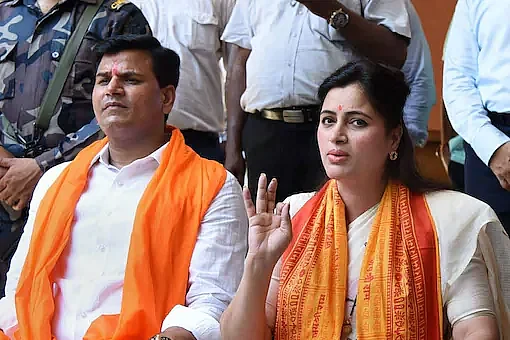The takeover mattered because, well, news matters. In the landscape of commerce littered with takeovers, hostile or otherwise, this could have been just another, but it was not. The takeover was not a mere resetting of a marketplace for commodities and services, like in the telecom sector, for instance. Nor was it only about balance sheets and annual reports. Its ramifications may be felt across India’s news media, its polity, even democracy. And it would be foolish to pretend it was unforeseen, especially by those who have been part of India’s media or have been watching it for years.
When Adani Media Networks Limited announced that it had taken over the little-known Vishvapradhan Commercial Private Limited which, through other equally obscure companies, held shares of New Delhi Television (NDTV), it sent ripples of excitement through those who back the power-to-ports conglomerate, partly for its breathtaking commercial daredevilry and partly for its boss Gautam Adani’s proximity to Prime Minister Narendra Modi. Their delight was laced with glee at vanquishing an opponent.
NDTV, started in the 1980s by the redoubtable psephologist and communicator Prannoy Roy, was the last one standing in a galaxy of channels which had supplicated themselves to the ruling party. BJP members often rubbished it and its anchors with the pejorative “LeLi”, to mean Left-Liberal, without realising that the two ideologies cannot be hyphenated. To everyone else, the takeover seemed like the last nail in the coffin of independent television news — with reason.
The mechanics of the takeover make for tedious reading. Prannoy Roy and his wife Radhika had borrowed hundreds of crores back in 2009 from Vishvapradhan, a subsidiary of another subsidiary whose trail leads to the Mukesh Ambani-owned Reliance Industries Limited. Essentially, Adani bought over Ambani’s share in the channel’s holding company and will bid to increase ownership and control.
To claim that NDTV was a bastion of the left or centre-left political space would be laughable given that its channels were largely comfortable with the free-market philosophy at play since India’s economic liberalisation began in 1991. However, in the increasingly shrill space of news television, its channels stood out for a calmer approach to news and a willingness to sometimes speak up against those in power. Lately, it has been the only channel to offer some disapproval of the ruling party’s policies and actions. That’s why news of the takeover matters.
It would be naïve to think that India’s news media have been supremely independent throughout the 75 years of Independence. The Emergency may have been the most glaring instance, but it was by no means the only one. Yet there were exceptions: newspapers and channels with editors who kept their spine erect in the face of many challenges.
The emergence of a ‘strong’ leader, the increasing currency of nationalism as a marker in every aspect of life, and the slow hollowing out of institutions in the democratic architecture cannot but place democracy in peril. The health and robustness of a democracy is tied to the independence of its institutions, including the health and robustness of its journalism. Because, in a democracy, journalism is the people’s voice, the platform for debate and dissent, and the watchdog of power.
Journalism has a responsibility to a democratic society that goes beyond commercial considerations. Large swathes of journalism have chosen to abdicate this responsibility in recent times – supping and supplicating with the powerful. When the last channel of influence falls into the shopping basket of a man close to the corridors of power, there remains no space for even the “i” of independent news.
A long view is also essential here. While this may be seen by some as the ruling party’s preparation for the 2024 general election, the consolidation did not come out of the blue. The post-liberalisation decades have seen steady consolidation of private ownership in the media despite the growing number of news platforms. What has followed is a gradual diminishing of journalism’s social-responsibility and community-building aspects and an increasing emphasis on commerce. Terms such as “assets” and “markets” have replaced “public interest” and “trust” in news companies and the boardroom has become more important than the newsroom.
This is reflected in the power equation between the news media and the government; the former relying more and more on government advertisements, besides corporate spending, for profits. India, which is among the biggest consumers of news, has one of the lowest press freedom rankings in the world. This is no accident: it is the outcome of consolidation of political power with economic power. When the wealthiest men commanding the country’s largest conglomerates, which include news companies, ally with untrammelled political power, it cannot be good news. Democracy may die in darkness but it also shrivels in the blinding floodlights of power.
(To receive our E-paper on whatsapp daily, please click here. To receive it on Telegram, please click here. We permit sharing of the paper's PDF on WhatsApp and other social media platforms.)





